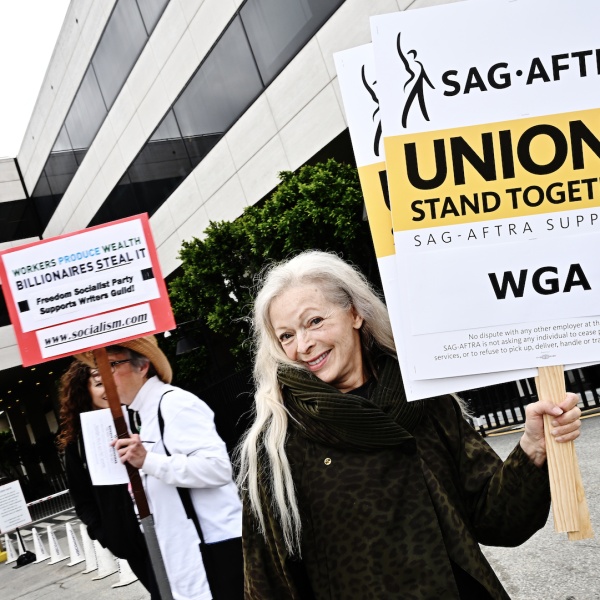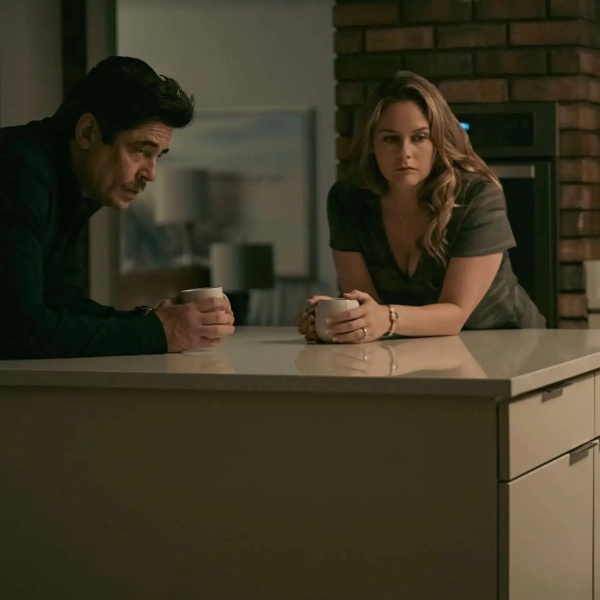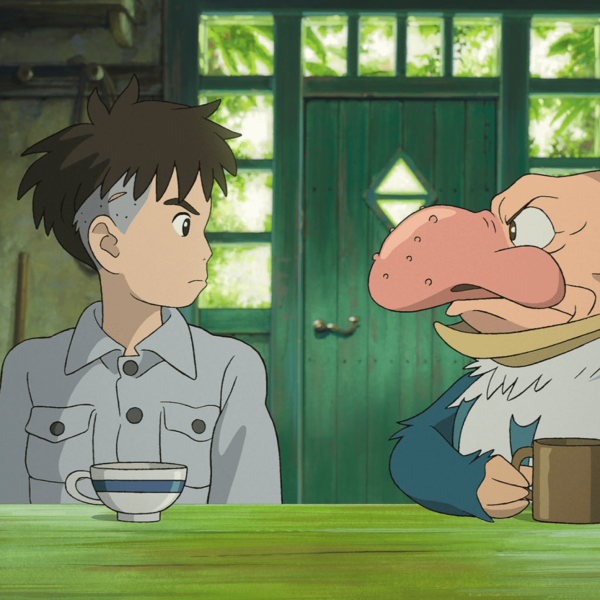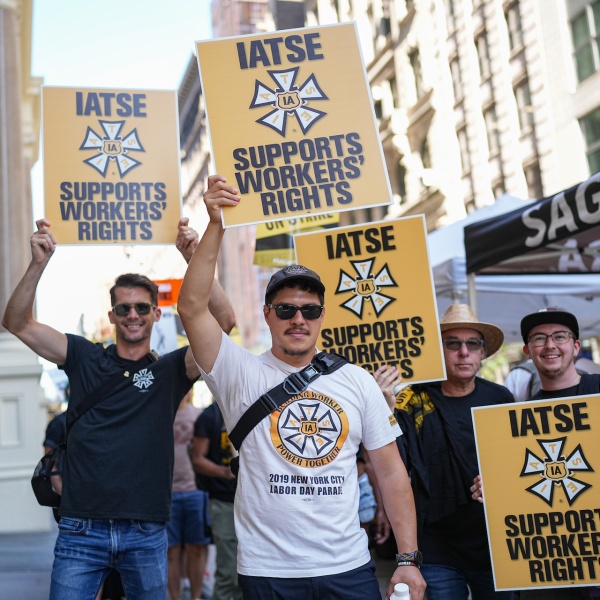Frank Grillo knows what he wants.
The erstwhile Crossbones of the MCU has crafted a niche for himself as a contemporary Charles Bronson over the last decade, parlaying mainstream buzz from projects like “The Purge 2” and MMA drama series “Warrior” into a string of superior indie action movies — even if he himself shies away from Bronson comparisons when speaking about his career.
“Not that I’m comparing myself to Charles Bronson, because I couldn’t,” Grillo told IndieWire during a recent interview over Zoom, adding with a laugh, “Charles Bronson never took his shirt off on a soap opera.”
With respect to Grillo, Bronson simply didn’t have the same range. Grillo emerged from a three-year run on “Guiding Light” in the late ’90s (“Never with a shirt on,” he joked) to a decade as a working actor before landing a juicy supporting role in the Liam Neeson-starring “The Grey.” Then came 2014 and his role as Crossbones in the Marvel movie “Captain America: The Winter Soldier” and starring roles in “The Purge: Anarchy” and the series “Kingdom.”
Now, Grillo has emerged as a singular leading man, someone audiences can depend on to deliver charismatic, action-fueled performances in movies that over-perform on VOD but earn little in terms of mainstream recognition. (Check out “Boss Level” and “Copshop” for two action movies that are fleeter and more enthralling than most studio releases in the genre.) But as Grillo is quick to point out, his films are just as much a part of the indie world as the small, low-budget dramas that most often spring to mind.
His most recent, “Lights Out,” features a plot that wouldn’t be out of place in a small Sundance drama. Grillo stars (alongside a cast that includes Mekhi Pfifer, Dermot Mulroney, and Jaime King) as Duffy, a vet who harnesses his PTSD to win money in underground fight clubs scattered through a seedy version of L.A. The story effortlessly tackles everything from police corruption to the psychological damage of years in combat while delivering the high-octane set pieces that fans expect from the man who began wrestling at the age of 8.
“When you’re doing movies like this, you have to live up to what we’re used to going into the cinemas and seeing,” Grillo said. “You know, a Gerald Butler or a Jason Statham movie or a Liam Neeson film. Those are fairly large movies. And to pull off, you know, a $5 or $6 million dollar movie that isn’t theatrical, it’s not an easy task. It’s not an easy task. And I think a lot of times critics kind of beat it up and they don’t take a minute to understand what it is.”
Grillo is serious about doing good work even as he doesn’t take himself too seriously (not every action star would laugh when mention is made of an early-career abs workout video). That combination of good humor, common sense, and machismo is what makes his action career stand out from his peers, even if he himself laments never reaching Jason Statham-esque levels of international success. Maybe Grillo is a little too sui generis to go totally mainstream right now; but that just makes him ripe for cult appeal.
The following interview has been edited and condensed for clarity.

IndieWire: It’s wild the level of excellence that you achieve in terms of the action sequences on such a minuscule budget, especially the fight scenes in “Lights Out.”
Frank Grillo: I don’t want my career to kind of end up in this weird place where I’m just doing this. But I like to do this, and I have a stuntman, Greg Fitzpatrick, who travels with me. I’m not gonna toot my own horn, but I will toot his horn on all of these movies. These producers are forced to hire him because he and I together — along with sometimes good stunt coordinators, sometimes not-so-good stunt coordinators — make sure that all of the action is safe and authentic, and that comes from us. That’s not something that is talked about, really. A lot of times we have to do some of these fight scenes on the day. There’s no time for choreography.
So you have a system for doing this, whether the filmmakers do or not. What gets you to say yes to a new indie action movie?
What gets me to say yes is if I could see good bones inside what is usually a flawed script. Dialogue is something we could fix. Structure, a little harder. We could change the paint in the dining room. But when I wanna put a window in, it’s a whole group of people. [The scripts] are never perfect. A couple of them have been. When I did “Wheelman” with Joe Carnahan, who’s an A-list guy all the way, that was an amazing script. So sometimes you get the script, but a lot of times, and this is another thing critics don’t understand, we work really hard to get the script as good as it can be. Including on “Lights Out.” On this movie, it was a Herculean effort to get it to a place where you could watch this movie, trust me.
At what point did you feel empowered to come in and have those serious conversations about script problems?
After I did some films like “The Grey” and “Warrior” and the Captain America movies and the Purge movies, I had some juice as far as the action [genre] was concerned, and because of that, I had some say. And my say wasn’t about my trailer or my hotel room or my travel. My say was, “We get to fix the script and we get to pick the people who are going to do the work, like my partner, Greg Fitzpatrick.”
Now, granted, I have my agents at CAA, and they’ve kind of warned me, “Listen, it’s high time that we calm this down, Mr. Action Guy. You’re getting up there in age, and we love you as a dramatic actor, even as a comedic actor, and we want you to kind of not get too far in the weeds with this.” So that being said, I think “Lights Out” is probably my last movie like this. I mean, I have two more in the can, which are more military-esque and bigger. But I have a bunch of things that I want to do. I’m doing something with James Gunn, which I will say I’m excited about. And “Creature Commandos,” which I’m really excited about.
And all these action movies had no budgets and tight shooting schedules on top of everything else!
These movies, brother, like this movie, “Lights Out,” it takes a lot out of people. Cause I gotta do it in a short time, you know. I got a director who doesn’t necessarily know what the hell he’s doing. And so you’re constantly moving the ship upstream and going against the tide. And you gotta be in the movie! So it’s an interesting thing, but Brandon Burrows, the producer of this movie, he’s a dynamite guy and a dynamite creative guy. And he and I in post along with his editor, we made this thing, I think, as good as it could possibly be. But hats off to Brandon.

Do you have any preferences in terms of the action sequences? Are you a big rehearsal person? Are you someone who can wing it with the team if you have to?
The team I have, which is always kind of spearheaded by Greg Fitzpatrick, he will work with the stunt people to let them know what I like and don’t like. And they’ll do what they call previz, which is basically shooting the rehearsals to show me, and then I’ll make notes, and they’ll do it again. And then I’ll go, I approve that. And then we’ll practice. We’ll rehearse that.
And I like to keep my fighting style dirty and authentic. And, you know, sometimes they want me to [choreograph it up] a bit. Which I’m glad to do. But I like it to feel like you’re watching a fight.
Forget Bronson, you’re the Marlene Dietrich of action movies, where you know the angles and how to achieve exactly the effect you want. I’m picturing you and the director’s chair with sunglasses on, watching them practice and going, I approve that. No, I do not approve that.
And here’s the deal: At my age, I have been training and fighting since I’m 7. From wrestling throughout school, to boxing, to jujitsu, to muay thai, at a high level. I even did a docuseries about fighting. I know more than most of these guys only because I’ve been on the planet longer. And I’ve never taken more than a week off since I was a kid, so it is ingrained in my DNA, the way language and breathing are. It’s like a guy who owns a Michelin-star restaurant, and he walks in and he can see the problems. I can come on the set and go, “Oh, that’s not right. That’s not for me. That’s not good. I can’t.” And that’s why we’re able to execute this stuff quickly. And quickly on these little movies is what you need.
And inexpensively! When you get, say, $5 million to create one of those movies, where does that money get allocated?
It’s a great question. And there is a lesson here from Blumhouse Films, from when I did “The Purge: Anarchy.” Jason Blum is a genius in that he created that micro-budgeted film. And what that did was it put all of the money on the screen, and the people who they call top of the line usually take a fee. You bet on yourself, and you take the money on the back end. Now, “The Purge: Anarchy” was a $9 million movie. That’s it. Right? The movie made $300 million. Yeah. You know what I mean? It’s a lot of money.
I think that’s gotta be the mission statement: put the money on the screen. And in Hollywood, there are several producers who are well-known here who will take a $5 million movie and $600,000 of it goes into the production, and the rest of it goes somehow to fees and private planes.
So your agents think it’s time you stepped away from these action movies? I’ll say, your performance on “Paul T. Goldman” was a goddamn delight.
It was so fun. It was so fun to watch. I was amazed. I was a big fan of the director because he had done the Borat movie that I thought was phenomenal. And I said, this is what I love to do. I can’t believe you’re getting this made. Like, this is so interesting and weird. And I’m in, man. I’ll do whatever. I’m coming to do this.
Are you looking to move more off-camera in the future, focus on producing?
No, no. I love to produce, my partner and I are constantly looking for the right thing to do. But no, I look at guys like, and again, not comparing myself ever, but I look at guys like Denzel, Gene Hackman, and all these guys. I’m friends with Sly [Stallone]. I was just with Sly, he’s 77 years old, he’s having a renaissance in his career. And I look at these guys, and I’m like, “There’s no reason to think about stopping.” It’s not a job. It’s acting. So, if I can keep myself — which I believe I will, knock wood — alive, I’d love to act until I literally can’t do it anymore.
Until someone has to take your shirt off for you.
No! Until they say to me, “Would you put that shirt back on?”
“Lights Out” is now available on digital, VOD, and in select theaters.






